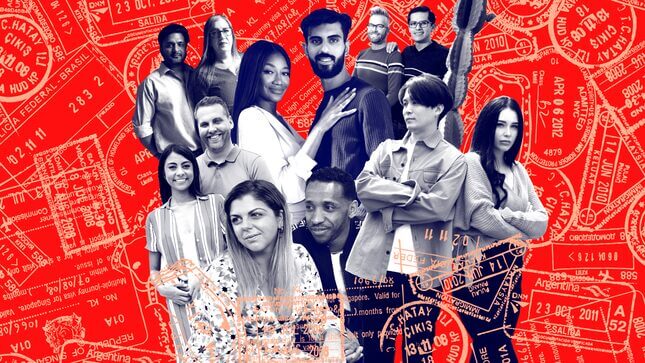
Graphic: Array
On a recent episode of 90 Day Fiancé: The Other Way, cast member Ariela travels to Addis Ababa, Ethiopia with her mother, Janice, for moral support. Ariela, who is pregnant and positioned as a world traveler, has decided to move to Addis Ababa to be with her child’s father, Biniyam, who she met on vacation, even though she is concerned about the potential lack of painkillers in the hospitals here. Janice describes the drive to her daughter’s new home as “nerve-wracking” and feels “concerned” about the “extreme poverty” to the point that she had “chest pain” entering the temporary apartment her daughter’s boyfriend had procured while his two-bedroom apartment was under construction (which was also found unsatisfactory). Janice swears she is “not a snob”—it’s just that she comes from a different culture and has visited poor countries before where she says “the people are very nice.”
Ariela acknowledges it can be “intimidating” to see the “beggars on the street, garbage everywhere”—it is perhaps no accident that she makes a subtle comparison of the underclass in Addis to garbage while complaining that her boyfriend should have gotten everything ready given how much she, a U.S. citizen, has given up to be there. Her worldliness ideally would have given her more perspective, but Ariela is a white woman who, while holding her belief in Judaism as highly important to raise her child in, calls her boyfriend’s beliefs “superstitious.” Yikes!
This is just one couple on the second season of 90 Day Fiancé: The Other Way, a spin-off of the series that started in 2014. Depicting U.S. citizens traveling abroad to be with their international partners, 90 Day Fiancé: The Other Way’s “other way” is a reversal from the parent show’s premise where subjects have to marry in 90 days on K-1 visas to stay in the U.S. In this version, the U.S. citizens go abroad. This reversal should, in theory, lessen the xenophobic violence of bringing a foreign national to the United States with precarious legal and economic status, but this spin-off becomes a rich text about the passport privilege into which U.S. citizens are born. In following U.S. citizens as they largely refuse to assimilate or even understand the host country’s culture, the show inadvertently draws a contrast to the tacit expectation of assimilation and humility from immigrants of the global south who move to richer countries.
-

-

-

-

-

-

-

-

-

-

-

-

-

-

-

-

-

-

-

-

-

-

-

-

-

-

-

-

-

-

-

-

-

-

-

-

-

-

-

-








































